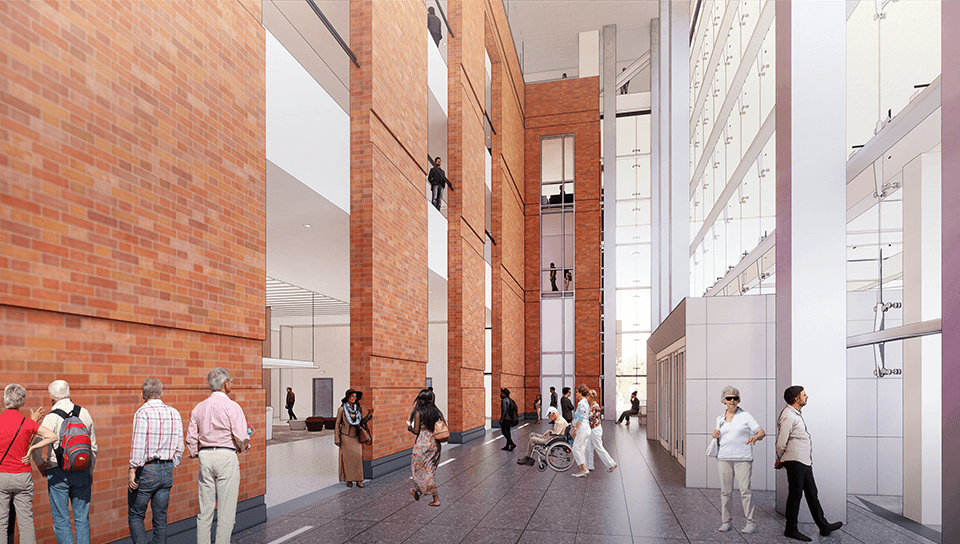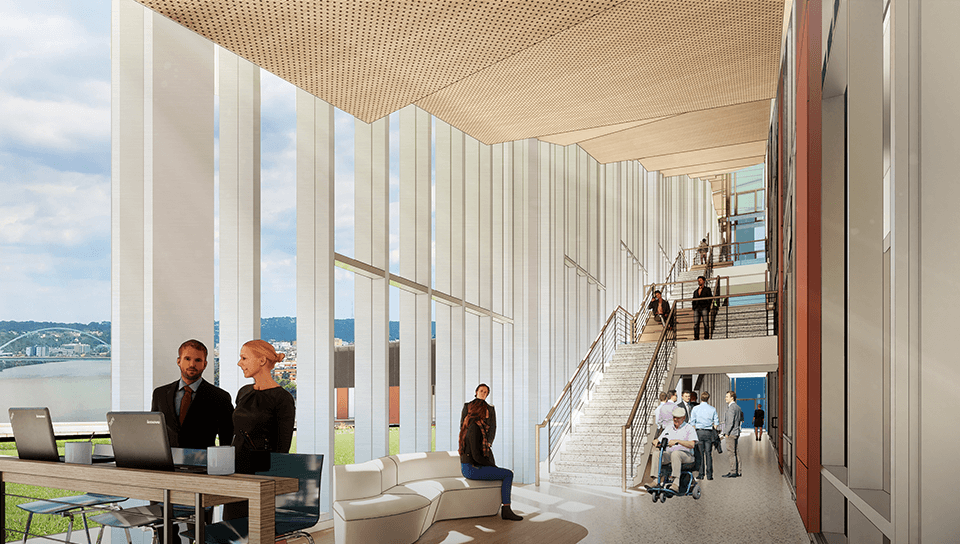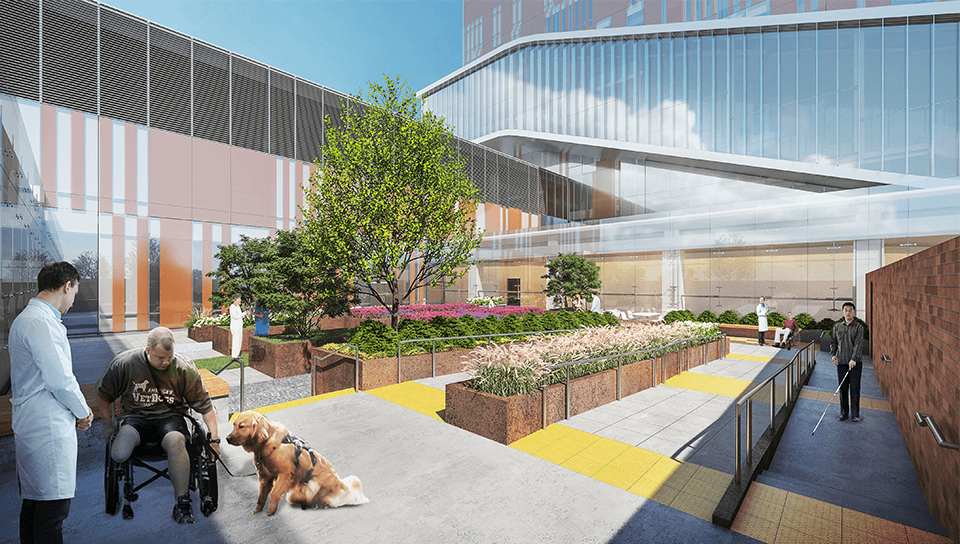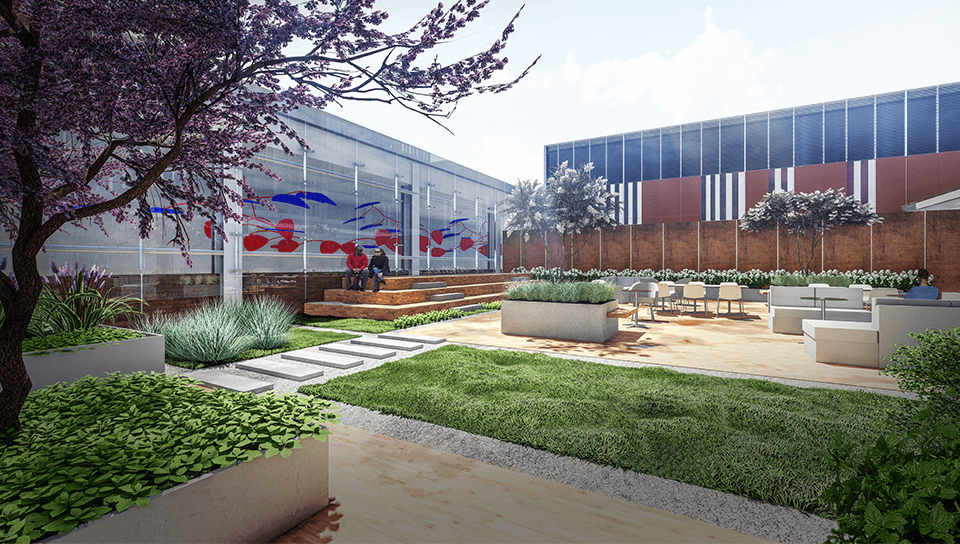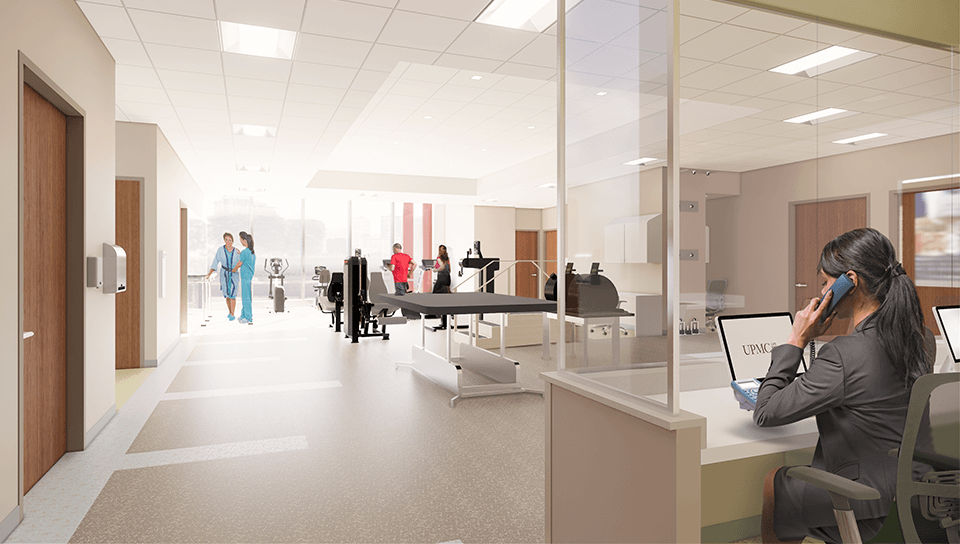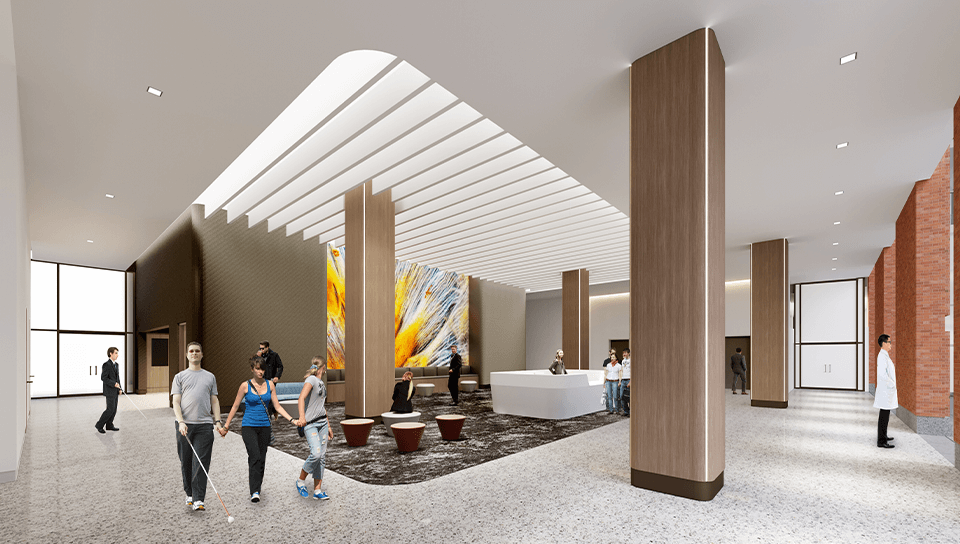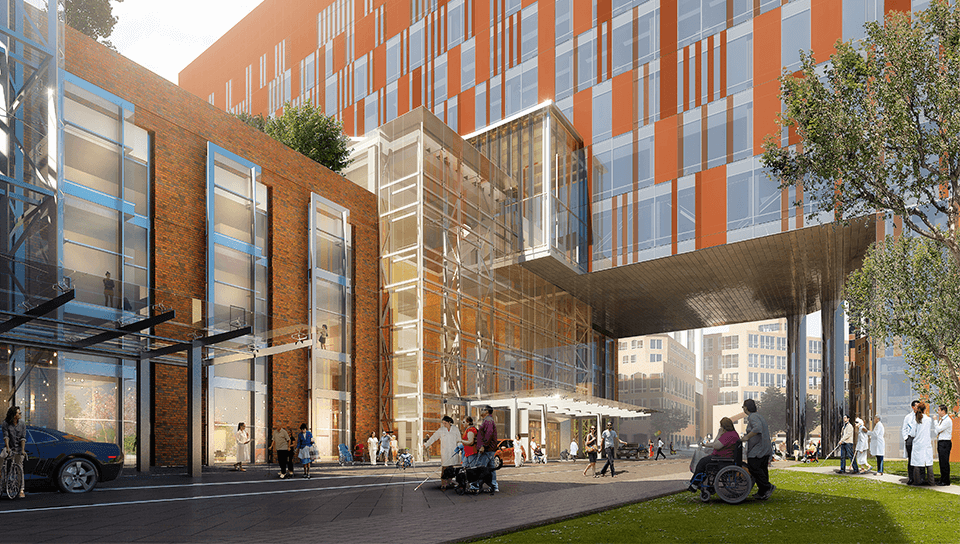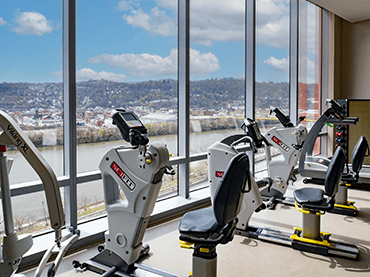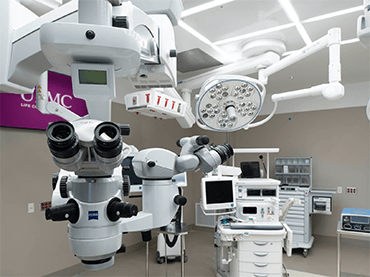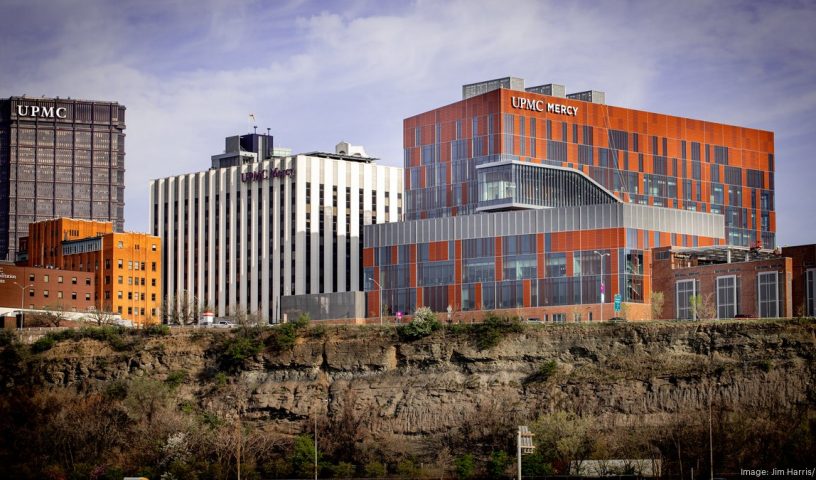
Vision loss and impairment have profound effects on daily life. Currently, more than 1 billion people worldwide have some form of visual disability. Some estimate that by 2050, over 115 million people will experience blindness, and 550 million will face vision impairment.
The UPMC Mercy Pavilion is the latest specialty care center to join UPMC’s already impressive facility portfolio. Harnessing both the academic and clinical missions of the University of Pittsburgh Department of Ophthalmology and UPMC, the UPMC Vision Institute leverages our global leadership in health care and scientific research with a multidisciplinary team of physicians, scientists, engineers, and allied experts to provide novel therapies, facilitate the movement of research from the bench to the bedside, enhance the treatment experience, and improve quality of life for patients with visual impairments.
The facility specializes in addressing issues related to the cornea, retina, optic nerve, and glaucoma, and through innovative treatments such as regenerative therapies. Among the advanced treatments available at the pavilion are a clinical trial center equipped with state-of-the-art imaging, functional vision assessments, and artificial intelligence. Additionally, novel biotherapies, such as proteins, optogenetics, gene supplementation, vision correction and editing, and cell therapies for eye diseases, are available. The facility also has a dedicated gene and stem cell preparation laboratory, offering prosthetic vision restoration, fully integrated low-vision rehabilitation technologies and services, and enhanced and proactive screenings and care for underserved populations.
The 410,000-square-foot, 10-story UPMC Mercy Pavilion includes:
- Eight eye disease operating rooms.
- 83 eye exam rooms.
- 10 rehab exam rooms.
- 100,600 square feet of dedicated research space.
- A life skills apartment and street lab for patients to practice vital life skills and live more independently.
- A healing rooftop terrace garden where patients can learn how to navigate in a safe space and prepare for real-life experiences.
The UPMC Enterprises Connection
The Pavilion highlights UPMC’s unique ability to convene its vast resources and thought leadership across all its divisions, including UPMC Enterprises, to redefine high-quality, accessible health care for all. However, aside from the impressive design, the project’s size, and the amount of financial commitment, UPMC’s team of renowned rehabilitation experts, ophthalmologists, and vision doctor-scientists, many of whom have deep ties to UPMC Enterprises, and their teams call the pavilion home.
José-Alain Sahel, MD, director of UPMC Vision Institute, advisor to our Translational Sciences team, and Co-Founder of UPMC Enterprises portfolio companies Avista and Sparing Vision, has played a crucial role in opening the new facility as he has been an inspirational force in bringing the Mercy Pavilion from concept to reality.
“This is an exciting time for the UPMC Vision Institute,” said Sahel, a world-renowned ophthalmologist who has led pioneering efforts and a first-in-human trial in optogenetic vision restoration. “The opportunities we have in our new facility, both clinically and academically, are unparalleled. The investment we are making in innovative treatments has the potential to revolutionize vision care and bring hope to patients all over the world.”
Our Digital Solutions team members co-led the Experience Design & Innovation Committee (EDIC), a group formed to enhance physical and digital patient experiences at the new facility. The EDIC explored opportunities such as improving elevator accessibility, parking-related amenities, a retail store, virtual care delivery, the role of art in visitor experience, and turn-by-turn indoor navigation technology, all inspired by the needs of ophthalmology and rehab patients.
The team worked alongside Dr. Sahel to bring his vision to life. The EDIC evaluated hundreds of vendors and opportunities to bring visibility and efficiency to a complex, resource-intensive workflow. They also searched and assessed various ways to improve and transform the care delivery process. The work that was done supporting the new Mercy Pavilion even led to investments in two Digital Solutions portfolio companies.
For portfolio company Avista, the pavilion’s opening brings more opportunities for research and development. Clinical trials are also to come in the not-too-distant future.
“Avista congratulates UPMC on the opening of the Mercy Pavilion, an amazing new care center combining clinical medicine and research together to make a difference for vision patients.” Said Avista CEO, Rob Lin, PhD. ”We hope that future patients can be treated at Mercy Pavilion with gene therapies for blindness being developed by Avista.”
In the News
- UPMC Mercy Pavilion: 8 eye operating rooms, 83 exam rooms, 10 rehab rooms, massive research space | Pittsburgh Tribune-Review
- UPMC Mercy Pavilion brings together vision, rehab (photos) | Pittsburgh Business Times
- How UPMC Mercy Pavilion Plans to Treat Numerous Vision-Related Conditions | Pittsburgh Magazine
- New UPMC Mercy Pavilion unveiled; will house vision, rehabilitation institutes | WPXI
